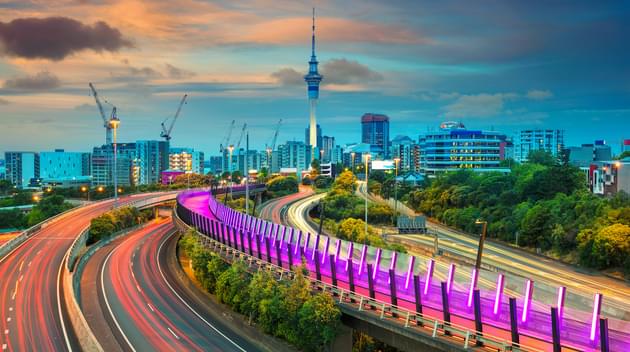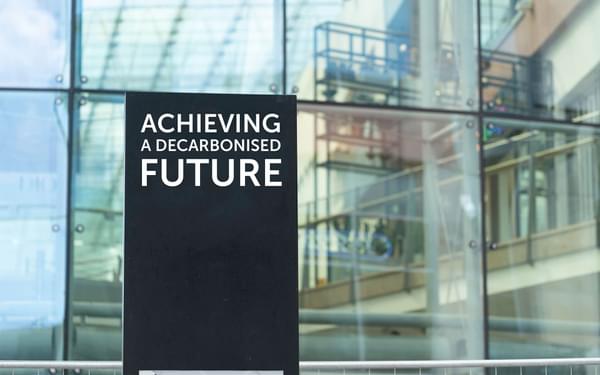Back to Articles
New Zealand's carbon emissions – small percentage, large responsibility
3rd Jul 2023
From first-hand experience in New Zealand, Maria identifies carbon literacy as the key to helping the country understand the importance of taking action on climate change. This learning will help overcome a perception that action is unnecessary and expensive given New Zealand emits only a fraction of the world’s emissions.
The importance of understanding emissions per capita
New Zealand, a country known for its stunning landscapes and commitment to conservation, contributes only 0.09% of the world's total CO2 equivalent emissions.
At first glance, this figure might suggest that New Zealand's impact on global climate change is negligible. However, a deeper dive into the data reveals a more complex and concerning picture which is why the country needs to take action to address emissions and reap the economic benefits and protect it’s natural heritage.
While New Zealand's total emissions may be small in the global context, the country's per capita emissions tell a different story. According to the World Bank, as of 2019, New Zealand's CO2 emissions were 6.8 metric tons per capita. This is considerably higher than the world average of 4.6 metric tons per capita and higher than many countries with larger populations, such as India, which had CO2 emissions of 1.8 metric tons per capita in the same year.
This discrepancy between total and per capita emissions highlights the fact that every individual's contribution to greenhouse gas emissions matters. It underscores the importance of personal and national responsibility in addressing climate change, regardless of a country's size or total emissions.
The per capita emissions figure is a crucial indicator as it provides a more accurate representation of the average individual's contribution to greenhouse gas emissions. It considers the country's population size, thus offering a more equitable comparison between countries of different sizes and population densities.
Factors driving New Zealand’s high per capita emissions
New Zealand's high per capita emissions can be attributed to several factors.
The country's economy is heavily reliant on agriculture, which is a significant source of methane, a potent greenhouse gas. Additionally, New Zealand's remote location and small population mean that the country must import many goods, adding to its carbon footprint.
Why New Zealand needs to act on climate change
Despite its small contribution to global emissions, it is essential for New Zealand to act on climate change for several reasons.
Firstly, as a developed nation, New Zealand has the resources and capabilities to invest in renewable energy, improve energy efficiency, and implement sustainable agricultural practices. By doing so, it can set an example for other countries and demonstrate that a transition to a low-carbon economy is both feasible and beneficial.
Secondly, New Zealand’s geographic location and environmental characteristics make it particularly vulnerable to the impacts of climate change. Rising sea levels, increased frequency and intensity of storms, and changes in rainfall patterns pose significant risks to the country's communities, economy, and natural ecosystems.
The year 2023 has been a stark reminder of this vulnerability, with the country experiencing a series of devastating cyclones. These extreme weather events, fueled by a warming planet, have caused significant damage and disruption, highlighting the urgent need for climate action.
Finally, acting on climate change aligns with New Zealand's commitment to the Paris Agreement, an international treaty aimed at limiting global warming to well below 2 degrees Celsius above pre-industrial levels.
Is New Zealand making the strides it promised?
The global community has set a deadline of 2050 for achieving net-zero emissions, a goal that New Zealand has also adopted.
Countries with similar economies to New Zealand are taking significant steps towards this target. For instance, Denmark, another advanced economy with a strong agricultural sector, has committed to reducing its greenhouse gas emissions by 70% by 2030 compared to 1990 levels.
New Zealand has made several commitments to address climate change. The Climate Change Response (Zero Carbon) Amendment Act 2019 sets a target of net-zero emissions of all greenhouse gases (except biogenic methane) by 2050. The country has also ratified the Paris Agreement, committing to reduce emissions to 30% below 2005 levels by 2030.
However, despite these commitments, New Zealand's actual emissions have increased significantly since 1990. Gross emissions have risen by 24%, and net emissions (which include carbon sequestration by forests) have increased by 57% compared to 1990 levels.
COP27 puts New Zealand out of step
The recent COP27 conference highlighted the contrast between New Zealand and Tuvalu's approach to climate change.
Despite being similarly vulnerable to sea-level rise and climate catastrophes, the two island nations had markedly different participations.
New Zealand pledged NZ$20 million to developing countries for climate change damage. However, it faced criticism for obstructing a fund for climate damage.
On the other hand, Tuvalu made a strong statement by being the first to call for a fossil fuel non-proliferation treaty.
The difference in these approaches underscores the need for New Zealand to take more decisive action on climate change.
Economic benefits to New Zealand from a net zero pathway
Transitioning to a net-zero economy is not just an environmental imperative; it also presents significant economic opportunities to New Zealand.
A study by Vivid Economics found that a net zero emissions target for New Zealand could increase GDP by 0.2% per year, leading to a cumulative GDP gain of NZ$30 billion by 2050. The study also found that the transition could result in a range of co-benefits, including improved air quality, enhanced energy security, and increased competitiveness in a global market increasingly favouring low-carbon goods and services.
The transition to a low-carbon economy can drive innovation, create jobs, and stimulate sustainable growth. The renewable energy sector, for instance, is expected to create millions of jobs worldwide over the next decade.
Business leaders and decision-makers have a crucial role to play in this transition. By accounting for carbon emissions in their operations, businesses can identify opportunities for energy efficiency, cost savings, and innovation.
Time for New Zealand to embrace the challenge
Climate change is a global problem that requires a global solution.
Every tonne of greenhouse gas (GHG) emissions, regardless of where it is emitted, contributes to the global total. As such, the responsibility for addressing climate change does not solely rest on the shoulders of the largest emitters. Every country, including New Zealand, has a role to play.
The path to a net-zero future is challenging, but it is a journey we must undertake. The stakes are high, but so are the rewards. By embracing this challenge, New Zealand can safeguard its natural heritage, drive economic growth, and contribute to a sustainable future for all.
References
- Greenhouse gas emissions from New Zealand sheep and beef farms
- World Bank Data: CO2 emissions (metric tons per capita)
- Potential effect of real-world junk food and sugar-sweetened beverage taxes on population health, health system costs and greenhouse gas emissions in New Zealand: a modelling study
- Can a Greenhouse Gas Emissions Tax on Food also Be Healthy and Equitable? A Systemised Review and Modelling Study from Aotearoa New Zealand
- Managing New Zealand’s greenhouse gas emissions from aviation The role of local governance in governing for intergenerational wellbeing
- Reducing greenhouse gas emissions of New Zealand beef through better integration of dairy and beef production
- A double win: new pathways to reduce greenhouse gas emissions and improve water quality in New Zealand
- Denmark's climate policies
- New Zealand's Climate Change Response (Zero Carbon) Amendment Act 2019
- New Zealand's commitment under the Paris Agreement
- New Zealand's greenhouse gas emissions
- Economic benefits of a net-zero economy
- Job creation in the renewable energy sector
- Avoiding greenwashing
- Quote by Prime Minister Jacinda Ardern
- New Zealand's pledge at COP27
- Criticism of New Zealand at COP27
- Tuvalu's call for a fossil fuel non-proliferation treaty













